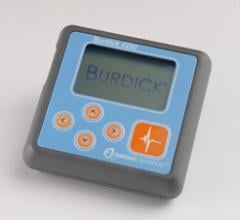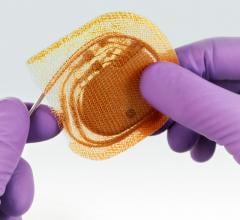Edwards Lifesciences announced today it received approval from the United States Food and Drug Administration (FDA) to treat high-risk aortic stenosis patients with the Edwards Sapien transcatheter aortic heart valve delivered both transfemorally and transapically (through the ribs). With the addition of high-risk patients to those eligible for the transcatheter procedure and with the approval of the transapical approach, a considerably broader group can now be treated with the Sapien valve.
Infraredx Inc., a medical device company, and Royal Philips Electronics announced they have signed a joint development and collaboration agreement that is focused on integrating Infraredx’s true vessel characterization (TVC) Imaging System with Philips’ Allura Xpercatheterization (cath) lab imaging systems. This collaboration is intended to enable seamless access to the TVC Imaging System with Philips’ Allura X-ray systems.
October 18, 2012 — Claron Technology has introduced Withinsight Framework (WIF) version 2.1, which adds advanced new segmentation tools, registration enhancements and performance improvements to the company’s innovative platform.
Cardiac PET/CT represents a major advancement in cardiovascular diagnostics, offering significant clinical and ...
AngioDynamics said it entered into a definitive agreement to acquire all the outstanding capital stock of Vortex Medical Inc., a privately held company focused on the development of innovative medical devices for the removal of thrombus, or blood clots, from occluded blood vessels.
October 16, 2012 — Proteon Therapeutics Inc. has initiated enrollment in a Phase 1 clinical study of its lead product, PRT-201, in patients with symptomatic peripheral artery disease (PAD) of the superficial femoral or popliteal artery.
October 16, 2012 — The American Institute of Ultrasound in Medicine (AIUM) will host an Ultrasound First Forum on Nov. 12, 2012, in New York City. The forum will address the expanding role of ultrasound imaging as a “first” imaging examination and will be devoted to encouraging the use of ultrasound as a safe, effective and affordable alternative to other diagnostic imaging modalities.
SPONSORED CONTENT — Studycast is a comprehensive imaging workflow system that allows healthcare professionals to work ...
October 15, 2012 — Cardiac Science has unveiled its Burdick 4250 Holter recorder — a wearable heart monitor half the size and weight of its Holter monitoring system predecessor.
Three-year data from the Zilver PTX randomized controlled trial of paclitaxel-eluting stents for femoropopliteal disease from Cook Medical demonstrate 70.7 percent primary patency in the superficial femoral artery (SFA) at 36 months for patients treated with the paclitaxel-eluting stent.
Surefire Medical Inc. has received U.S. Food and Drug Administration (FDA) 510(k) clearance to market its line of Surefire angiographic catheters. Surefire Medical will launch these products in the United States later this year.
Providing exceptional cardiovascular care for patients to achieve the best possible outcomes is the number one goal for ...
October 12, 2012 — Biotronik announced the start of the prospective multicenter PARCADIA study. The study aims to identify risk factors that can help predict appropriate ICD interventions in patients with ischemic cardiomyopathy who have received an ICD for primary prevention according to the current ESC (European Society of Cardiology) guidelines.

October 12, 2012 — Boston Scientific announced it has enrolled the first patient in the REPRISE II clinical trial to evaluate the safety and performance of the Lotus valve system in up to 120 patients with severe aortic valve disease.
October 12, 2012 — Estech, a provider of minimally invasive cardiac ablation devices, last month announced the market release of its Cobra Fusion ablation system.
Cardiac positron emission tomography (PET) is growing in popularity among cardiologists because it provides the ability ...
TyRx Inc. announced that it has received a license from Health Canada to market its AigisRx Antibacterial Envelope. The AigisRx Envelope is specifically designed to stabilize pacemakers and implantable cardioverter defibrillators (ICD) while also releasing antimicrobial agents to help provide protection from microbial colonization of the device during surgical implantation.
October 11, 2012 — Spectranetics Corp. announced the U.S. market launch of the Tapas catheter at the 2012 Vascular Interventional Advances (VIVA) conference in Las Vegas. Tapas is manufactured by ThermopeutiX Inc. and distributed by Spectranetics.
October 11, 2012 — Edwards Lifesciences Corp. announced it has completed the acquisition of BMEYE B.V., a privately held Dutch company that specializes in the development of noninvasive technology for advanced hemodynamic monitoring.


 October 19, 2012
October 19, 2012














